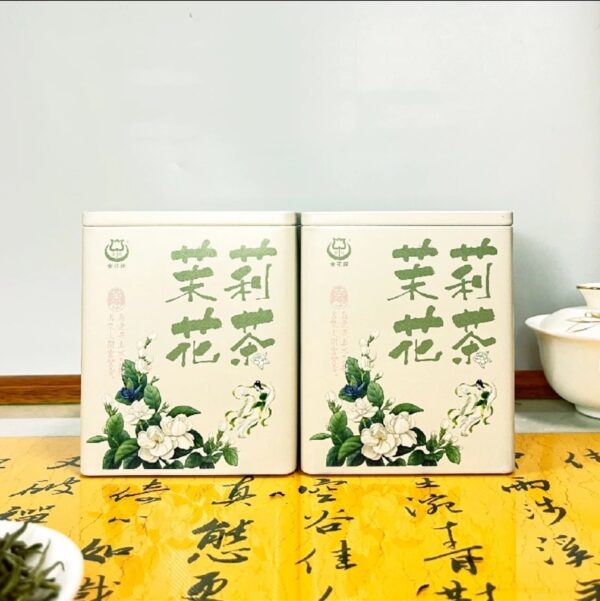
# Jasmine Tea: A Fragrant Delight for Tea Lovers
## The Allure of Jasmine Tea
Jasmine tea is a fragrant and delicate beverage that has captivated tea enthusiasts for centuries. This aromatic infusion combines the subtle flavors of green, white, or black tea leaves with the sweet, floral essence of jasmine blossoms, creating a truly enchanting drinking experience.
## A Brief History of Jasmine Tea
Keyword: jasmine tea
The tradition of scenting tea with jasmine flowers originated in China during the Song Dynasty (960-1279 AD). The process was perfected in Fujian province, where the climate proved ideal for growing both tea plants and jasmine flowers. Today, jasmine tea remains one of China’s most famous and beloved tea exports.
## How Jasmine Tea is Made
The production of jasmine tea is a labor-intensive process that requires great skill and patience:
– Tea leaves are harvested in early spring and stored until summer
– Jasmine flowers are picked in late summer when their fragrance is most intense
– The flowers are layered with tea leaves at night when they release their strongest scent
– This scenting process may be repeated multiple times for premium grades
– Finally, the jasmine blossoms are removed, leaving only their exquisite aroma
## Health Benefits of Jasmine Tea
Beyond its delightful taste, jasmine tea offers numerous health benefits:
– Rich in antioxidants that may help prevent cell damage
– Contains compounds that may support heart health
– May aid in digestion and weight management
– The aroma is known to have calming effects, reducing stress
– Contains less caffeine than coffee, making it a gentler stimulant
## Brewing the Perfect Cup
To fully appreciate jasmine tea’s delicate flavors:
– Use fresh, filtered water heated to 175-185°F (80-85°C) for green tea base
– Steep for 2-3 minutes to avoid bitterness
– Enjoy plain to appreciate the natural flavors, or add a touch of honey
– Use a glass or porcelain teapot to admire the beautiful leaves unfurling
## Varieties of Jasmine Tea
Jasmine tea comes in several delightful forms:
– Jasmine Pearl Tea: Hand-rolled leaves that unfurl beautifully when steeped
– Jasmine Silver Needle: Made with premium white tea leaves
– Jasmine Green Tea: The most common variety with a fresh, grassy base
– Jasmine Black Tea: A bolder version with deeper flavor notes
## Pairing Jasmine Tea with Food
The floral notes of jasmine tea make it an excellent companion for:
– Light desserts like almond cookies or fruit tarts
– Mild cheeses and fresh fruits
– Asian cuisine, particularly dim sum and steamed dishes
– Spicy foods, as it helps cleanse the palate
## The Cultural Significance of Jasmine Tea
In Chinese culture, jasmine tea symbolizes purity, elegance, and grace. It’s often served to honored guests and used in important ceremonies. The tea’s delicate fragrance is said to evoke feelings of happiness and well-being, making it a perfect beverage for relaxation and meditation.
Whether you’re a seasoned tea connoisseur or new to the world of specialty teas, jasmine tea offers a uniquely aromatic experience that delights the senses and soothes the soul. Its perfect balance of floral sweetness and tea complexity continues to win hearts around the world, one fragrant cup at a time.